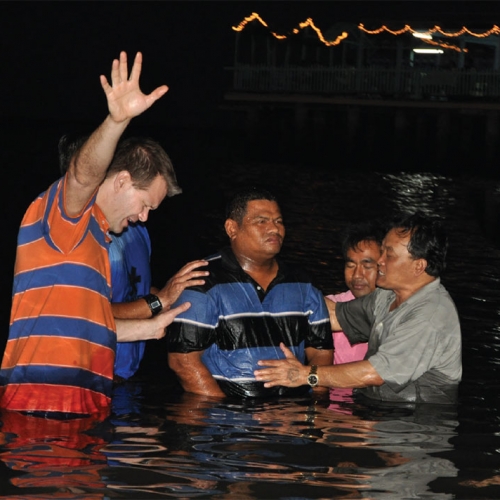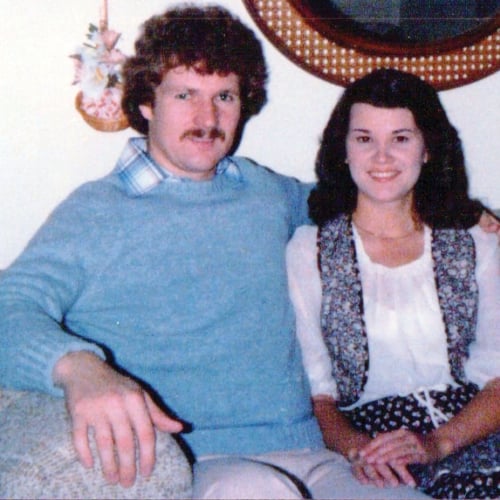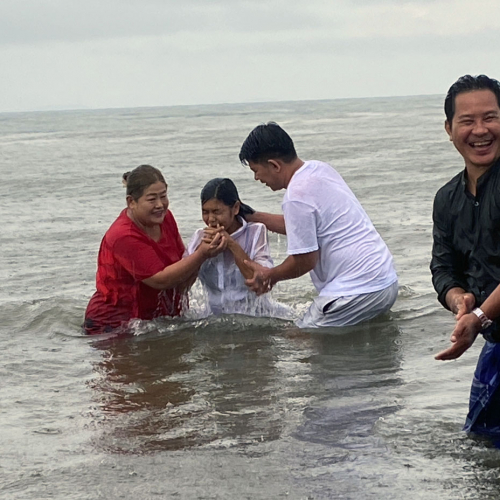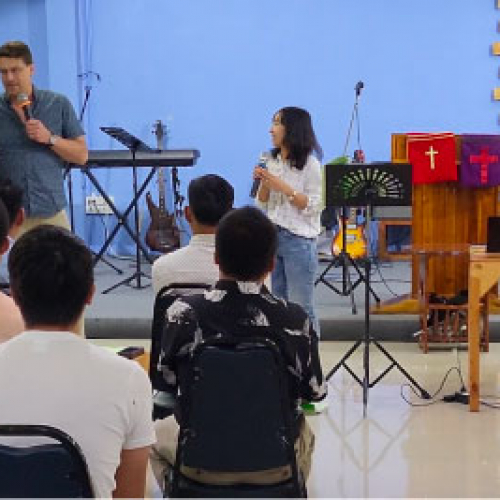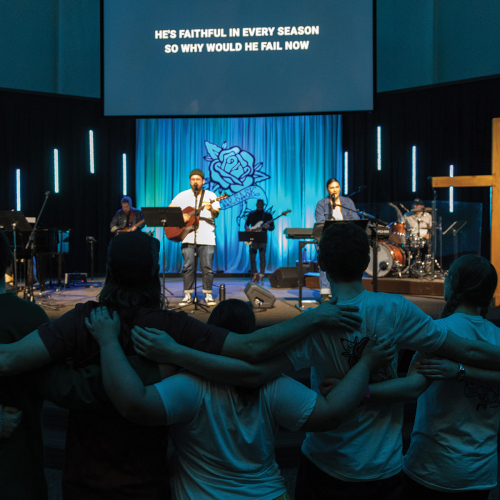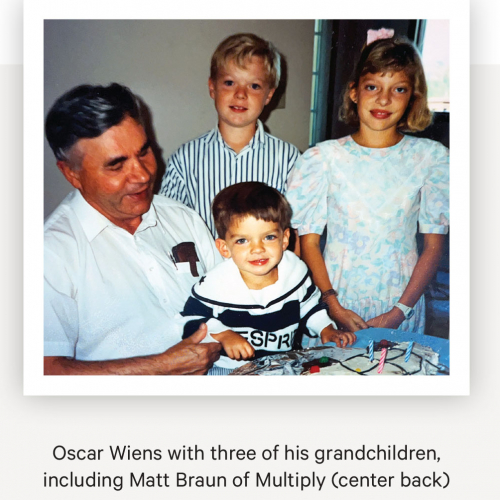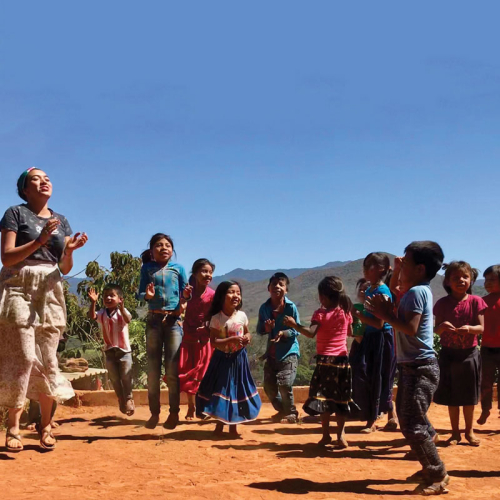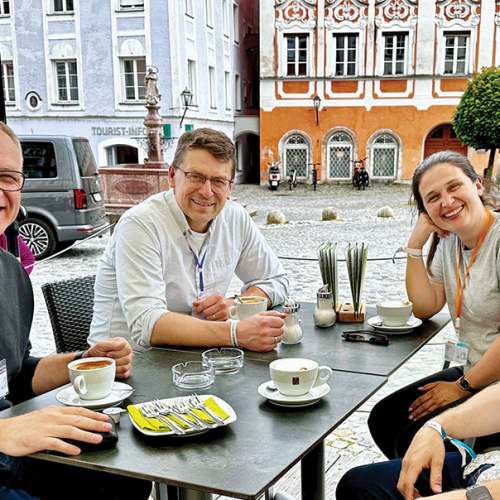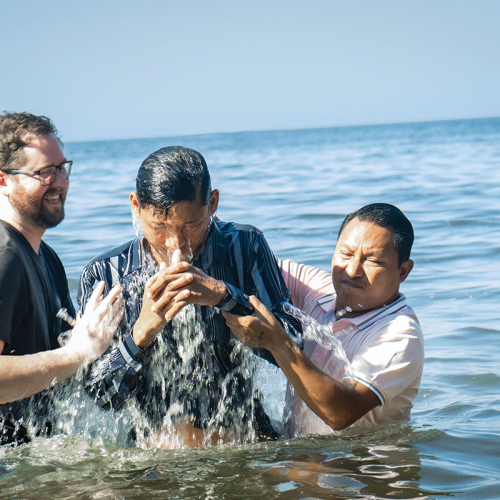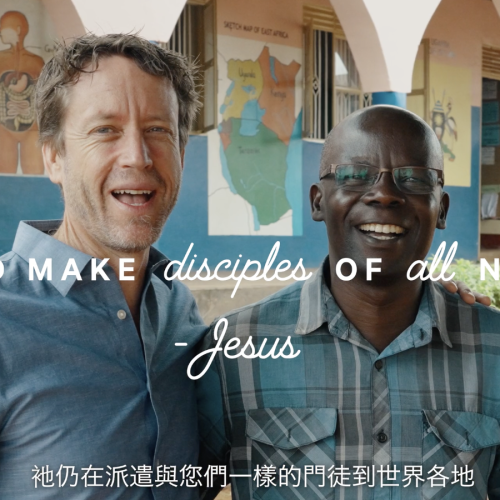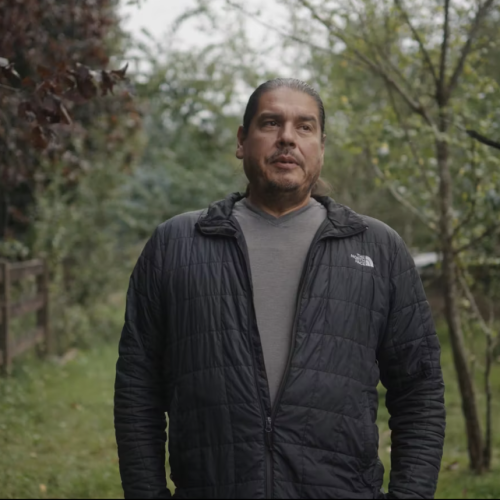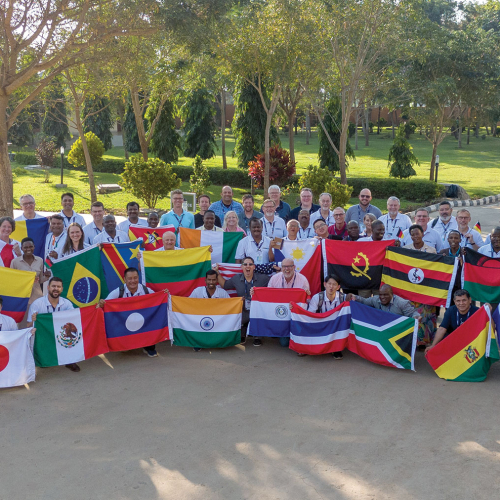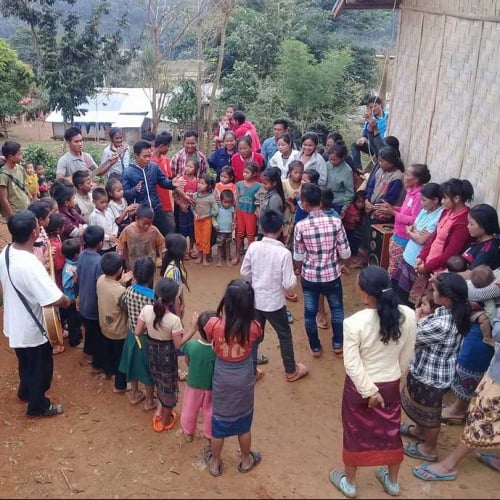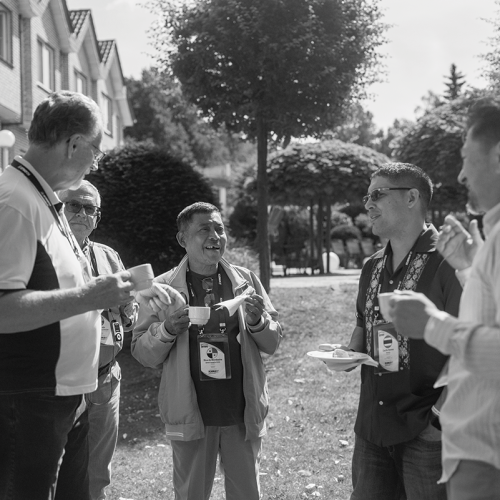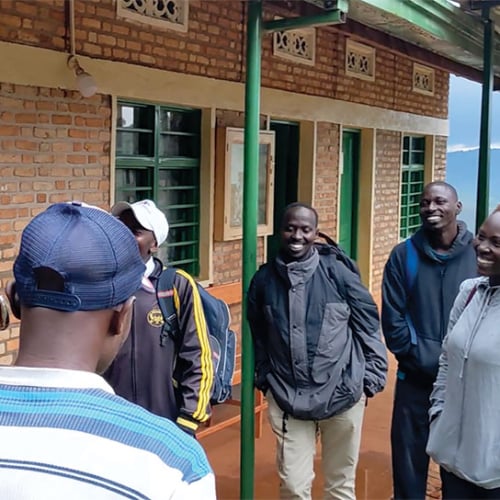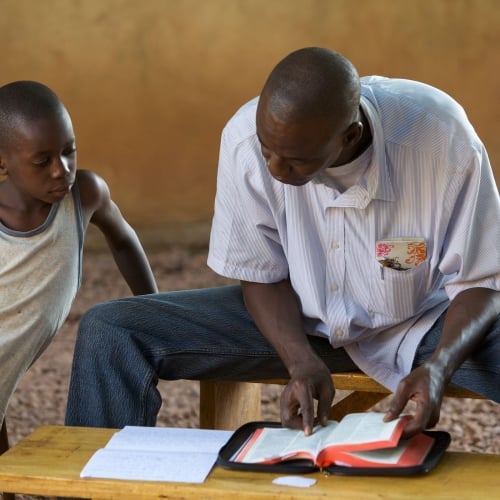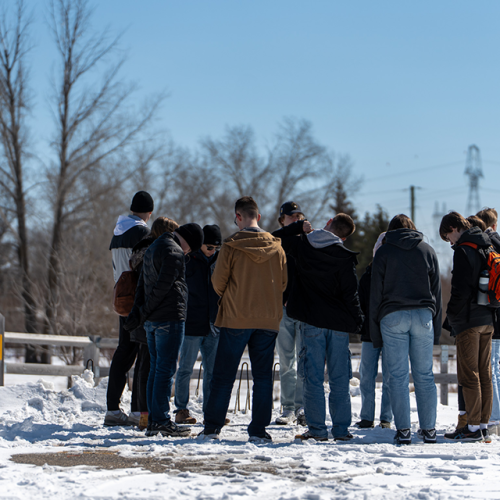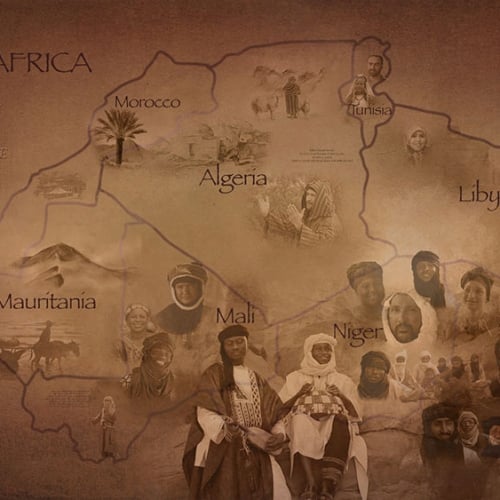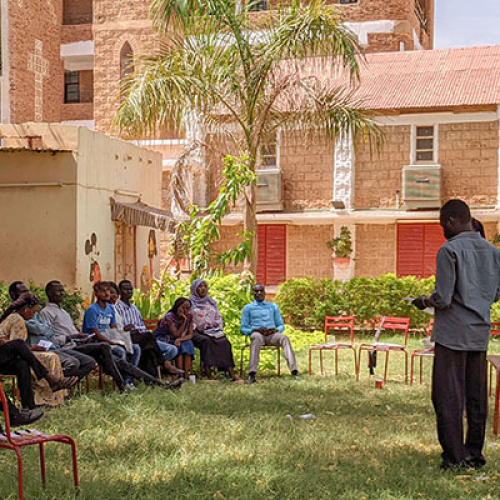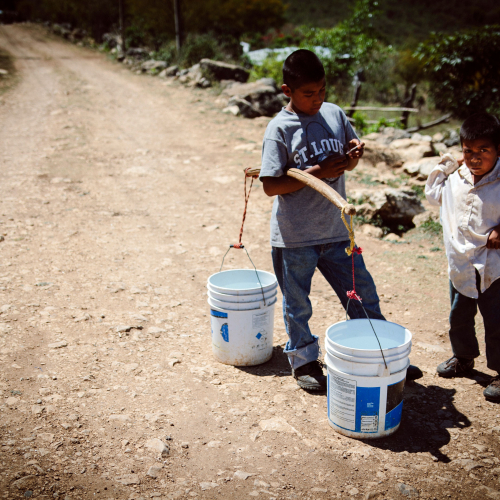Incarnational Life
At my oldest brother Rob’s funeral a couple of years ago, I learned a few things about him I never knew. I knew that the people and country of Bangladesh were deep in his heart, and that it was only when he was in that country that he truly felt at home. He served there with his wife, Helen, for many years, started their family there, lived out his faith in Jesus with MCC in community development, and returned many times in the years that followed.
But what I didn’t know is that when he first went as a young, single man, in the early 1970s, he lived on his own in a remote village with the people, while the rest of his team lived in the compound in the big city. This pushed him into deep relationships as he daily needed the help of locals. He learned the language well. So well that one Bengali friend who spoke at his funeral said he talked to Rob a couple of times on the phone before he met him in person. When he finally met him, the first words of surprise out of his mouth were, ‘You’re white!!” Rob sounded just like a Bengali national on the phone.
Rob taught me that incarnational ministry means being up close and personal to the people you are loving and serving. Nowhere do we see this more powerfully than in the incarnation of God—God with us.
“So the Word became human and made his home among us. He was full of unfailing love and faithfulness. And we have seen his glory, the glory of the Father’s one and only Son” (John 1:14 NLT). This is the remarkable story of the Gospel, that God humbled himself to come and serve among a particular people, in a particular context, at a particular time in history, with humility and purpose.
As a first century Jew, Jesus was circumcised, learned to speak the local languages, ate ethnic food, and laboured at a socially acceptable trade. He adapted himself to the Jewish temple worship and synagogue teaching practices so that he might, with a quote from Isaiah, herald his ministry on earth. He chose the well-known role of a wandering rabbi, indigenizing his salvation message, and teaching about the kingdom of God with familiar literary devices and culturally relevant parables so that his stories would be understood by those involved in the agriculture and fishing industries of Galilea.
Jesus engaged the whole person, providing hope and freedom for the darkness and sin in their lives, as well as addressing a whole range of mental, physical and social needs that were present.
The Mennonite Brethren have a rich, 150-year history of mission. Birthed out of a move of the Holy Spirit that inspired passion for worship, personal holiness, church renewal and evangelism, MBs have always embraced a holistic mission that is both local and global, seeking to reach not only the lost abroad, but also the diaspora in North and South American colonies, as well as the lukewarm within their own churches.
Each of these mission fields has a very different context, requesting a very different approach. Wherever God sends us, we are called to communicate and live out the Gospel in ways that will be understood. Mission is accomplished through Incarnation - our whole lives engaged in kingdom work together with the whole lives of others.
Matthew 5-7 - Salt and Light - Proximity
The Sermon on the Mount (Matthew 5-7) is a radical, beautiful invitation into kingdom living. Jesus captures a holistic Gospel addressing the whole person. He teaches about the importance of the condition of our hearts, our understanding of the kingdom, the impact of our actions on relationships, and the power of the words that we say. This is the nature of what life in the kingdom looks like, when empowered by the Spirit. In Matthew 5:13-16, Jesus teaches with two powerful metaphors that are to be evident in our lives of faith - salt and light.
The application of the metaphor of salt and light are many—I want to focus on proximity. What strikes me about light is that it can be seen from a distance, as Jesus says, like a city on a hill. The good deeds of our lives make a kingdom impact when the truth and grace of Jesus are shining out to the world around us for all to see Jesus through us.
Salt is different. For its effects of flavor, preservation, or transformation of any kind to take place, it must make contact with the food. The saltiness of our lives also requires personal contact and to be embedded deep within cultures and relationships.
Light can be experienced from a distance. Salt must be encountered up close—it’s very personal.
Jesus’ statements about salt and light are both a statement of fact and a prophetic declaration of the ‘now and not yet’ kingdom. He is saying, ‘we are salt and light’. Not that we might be, but that we already are, and it’s an invitation to become more fully what God has already made us to be.
Holistic and Contextual Ministry
At Multiply, our primary focus is on helping everyday disciples multiply, so that the world may know Jesus. Every church we partner with has a specific global context for disciple-making and church planting, and our goal is to support and serve them in these ministries. This is the work that only the Christian Church can do—helping people become fruitful followers of Christ in their everyday lives. But we also recognize that we are whole beings, and that all effective ministry recognizes not only the spiritual needs, but also those needs that are social, physical, and mental. Our gospel needs to be a holistic kingdom gospel and not a false dichotomy that separates the spiritual from the physical.
In Dean Flemming’s book, “Recovering the Full Mission of God,” he articulates three interrelated components of mission—being, doing, and telling. He writes that our identity and character must capture the kingdom of God, reflecting our ‘being,’ and that our lives need to give witness to God’s transformative power. The ‘doing’ of our gospel witness must include works of justice, mercy and service, addressing the needs of the marginalized and oppressed. Only then does the verbal proclamation of the Gospel (telling) have rich soil in which to be planted in the lives of people.
Flemming argues that these three aspects are not to be compartmentalized but are integrally connected. He states, “We don’t simply do mission. We are mission. And what we do and say flows out of who we are.”
Throughout this edition of the Witness, you’ll read stories of people living out the Gospel holistically and contextually in many diverse settings. This requires a posture of humility and service, as we encounter the transforming power of Jesus and his kingdom, together. Contextualization does not mean that we compromise the fundamental truths of Scripture, but it does mean letting go of the excess baggage of our personal and cultural preferences.
Philippians 2:5-8 (NIV)
“In your relationships with one another, have the same mindset as Christ Jesus:
Who, being in very nature God,
did not consider equality with God something to be used to his own advantage;
rather, he made himself nothing
by taking the very nature of a servant,
being made in human likeness.
And being found in appearance as a man,
he humbled himself
by becoming obedient to death—
even death on a cross!”




